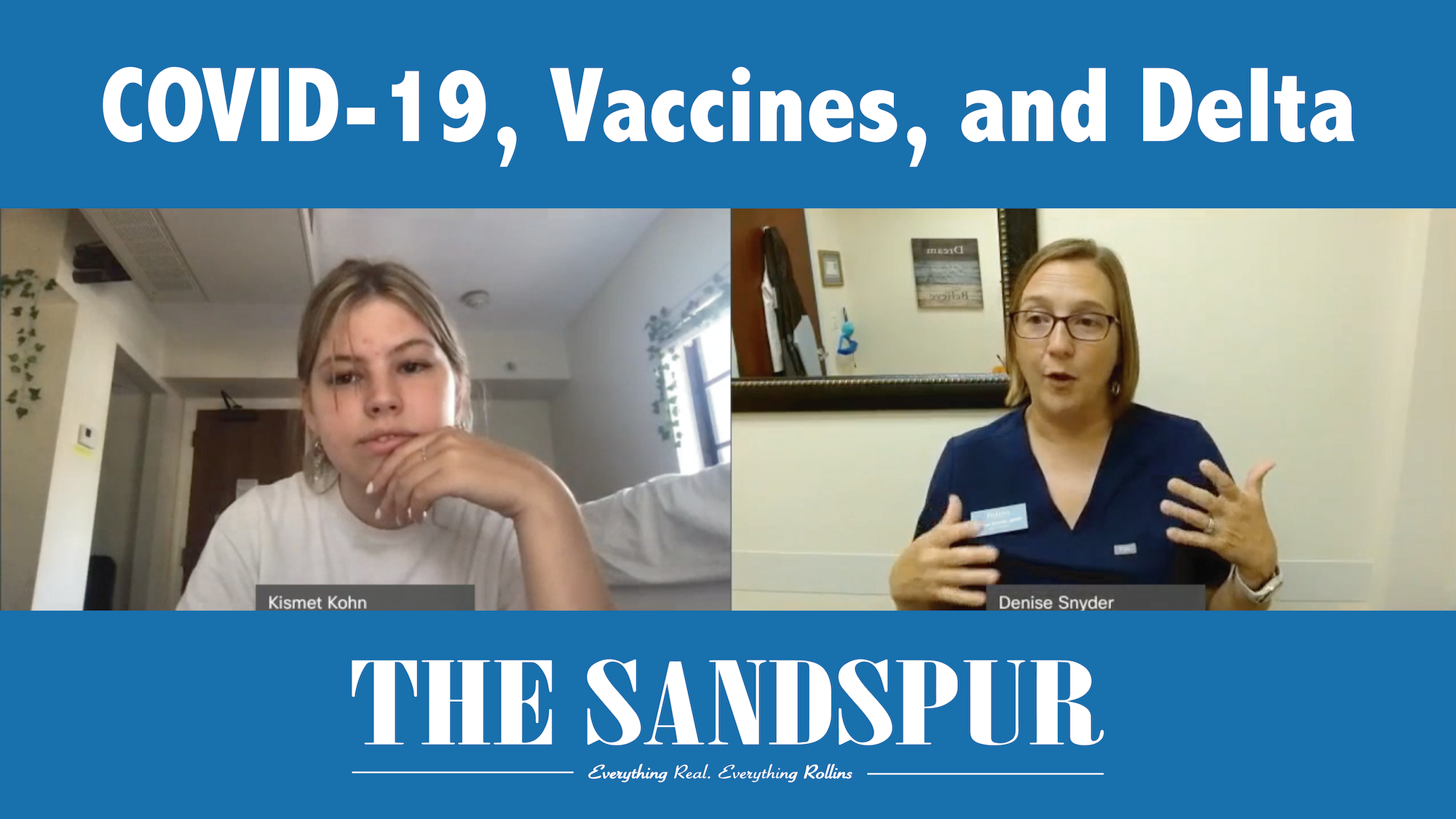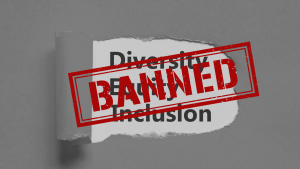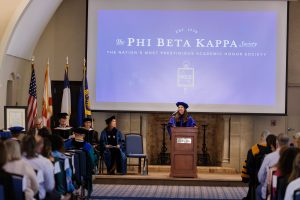The Sandspur sat down with Denise Snyder, assistant director of the Wellness Center, to address misconceptions of the delta variant and COVID-19 vaccinations. For current information on COVID-19 and vaccination statistics on Rollins’s campus, visit the public dashboard.
Q: How does COVID-19 spread, and what role do masks play in curbing the transmission of the virus? How effective are masks?
A: COVID-19 spreads via droplet and airborne transmission. Droplet transmission occurs when individuals cough or sneeze. Masks offer a layer of protection in decreasing the transmission of COVID-19; studies show that mask effectiveness ranges from 62 to 80 percent in the reduction of COVID-19 when worn correctly (covering your mouth and nose). When physical distancing is added to mask-wearing, the transmission risk is decreased even further.
Q: How do vaccines help develop immunity in our bodies? How does vaccination protect our community at Rollins?
A: COVID-19 vaccines teach your body to create IGG antibodies against the COVID-19 virus. Therefore, after vaccination, if you’re exposed or infected with COVID-19, you will not become ill or will only have mild COVID-19 symptoms.
Vaccinations of all kinds help protect our Rollins community. At present, Rollins requires measles, mumps, and rubella (MMR); hepatitis B; and meningitis vaccines. These are to prevent communicable diseases in our campus community. COVID-19 vaccines are a prevention tool for personal protection and the further reduction of illness at Rollins.
Q: How do vaccines protect us from the delta variant?
A: The vaccines – specifically the mRNA vaccines (Pfizer and Moderna) – are intuitive in recognizing the spike protein (regardless of the variant) and preventing infection/illness. The delta variant has a much higher viral load, which is where more people get sick and spread it to more individuals. The delta variant transmission is equivalent to measles and chickenpox, meaning each positive unvaccinated individual could infect up to eight other unvaccinated people.
Q: Why do you think so many people distrust the science behind the vaccine?
A: I believe the majority of individuals trust science. Last year, we lived through a pandemic without the layer of protection of the vaccine, and now we have the COVID-19 vaccine readily available to not only protect ourselves, but our community as well. I believe social media platforms have negatively impacted personal views of the COVID-19 vaccine by providing false information that spreads rapidly. I encourage each individual to go meet with a healthcare provider to share their individual concerns and get answers from reputable evidence-based sites, such as the National Institute of Health, Center for Disease Control (CDC), and Johns Hopkins.
Q: What kind of misconceptions are there about the delta variant?
A: A misconception is that young and healthy people will be fine if they get COVID-19. However, our hospital systems are showing that the number of unvaccinated individuals under the age of 30 hospitalized for COVID-19 is on a drastic rise. In addition, our pediatric population (under age 12) is being adversely affected, and our pediatric wards have COVID-19 throughout the system.
Q: What impact is the delta variant having on the education sector in Central Florida?
A: Due to increased transmission and spread, many local schools are required to isolate and quarantine more students. I would recommend looking at Orange County schools for specific information/data.
Q: How does the COVID-19 pandemic change the outlook for the future of the Rollins community?
A: We all want to return to “normal,” and the quickest, safest way to do that is to have our entire campus community vaccinated for COVID-19.
Q: Have there been any confirmed cases of the delta variant on campus so far? Please describe recent trends in campus positivity rates.
A: Our rapid antigen testing detects positive or negative (regardless of variants). Our effluent testing is underway and will be reviewed for variants throughout the academic year. Based on recent Orange County data, more than 80 percent of cases are caused by the delta variant.
Q: How have Wellness Center services shifted since COVID-19? How has the delta variant impacted the Wellness Center’s operations?
A: We are currently offering all of our routine appointments in addition to COVID-19 testing, quarantine, and isolation management. If our community experiences a drastic surge of COVID-19, we will shift from our routine care and focus solely on COVID-19 management.
Q: In your opinion, why should students get vaccinated? What message would you like to send to unvaccinated students?
A: The rate of spread and infection with COVID-19 and the delta variant shows an extremely high likelihood that any of our unvaccinated students will test positive for COVID-19 in the next six to eight weeks. Our hospitals need to be available to treat other illnesses and injuries, and with our current surge in cases, they are at max capacity to do so. We all need to do our part in protecting both our personal and community health by being vaccinated for COVID-19.
Q: What would you say to those who doubt whether they should get the COVID-19 vaccine?
A: Over 363 million Americans have been vaccinated thus far. The Pfizer vaccine is now FDA approved (no longer just emergency authorized). We know that COVID-19 can have long-lasting effects, not only on ourselves, but our community. I encourage each student to review the research from evidence-based sites, speak directly with their healthcare provider, or reach out to me at the Wellness Center. I also recommend having an open dialogue with friends and family and encouraging them to get vaccinated.
The full interview can be found below.












Comments are closed.